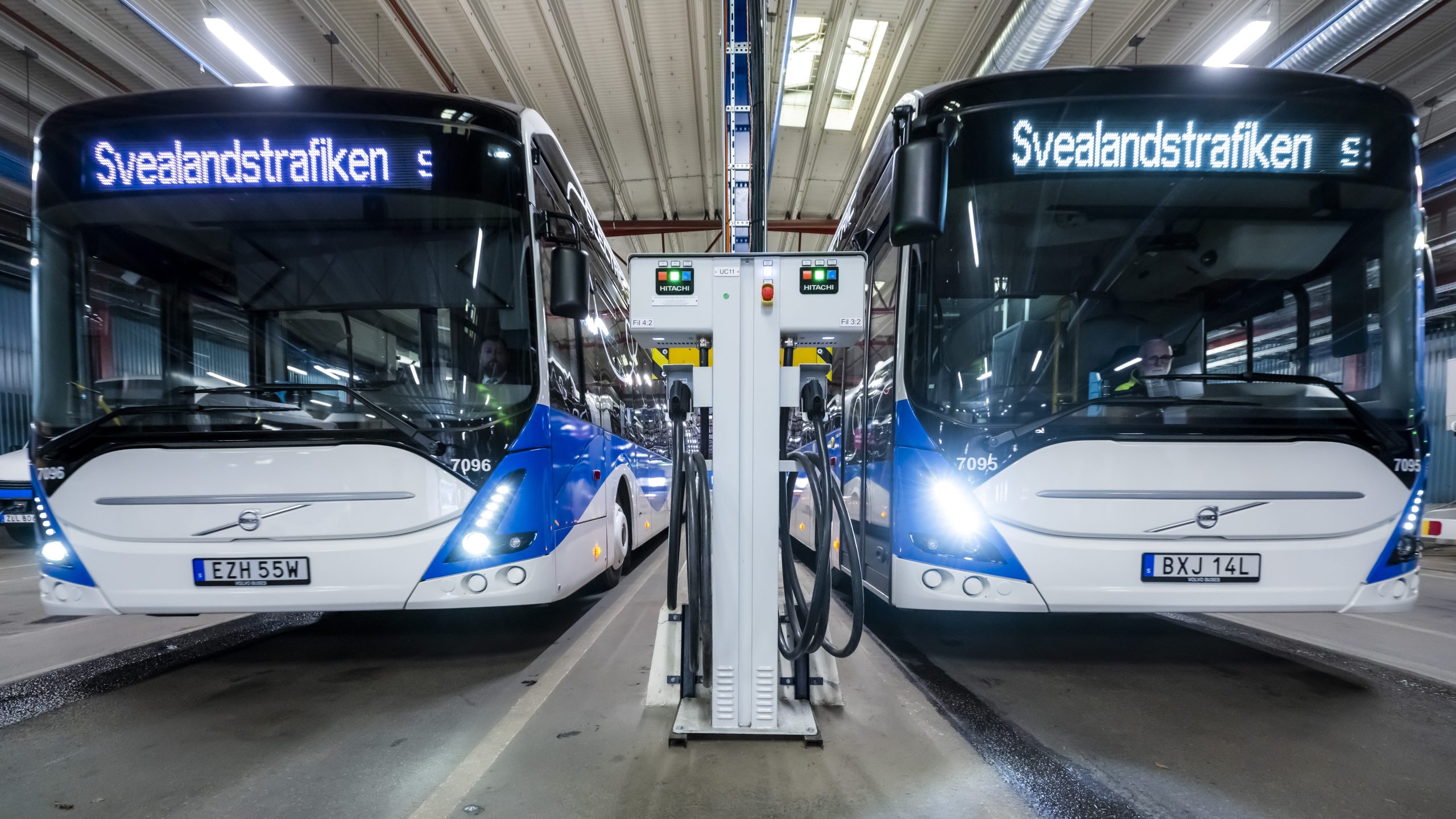
Electrifying bus fleets provides an excellent opportunity to make meaningful progress in quickly decarbonizing transportation.
We are on the verge of the wholesale electrification of vehicle fleets of all kinds, and buses are at the forefront of this shift. We have long recognized that buses provide an energy-efficient and relatively low-cost means of transporting people where they need to go. Buses are a particularly important part of the transportation mix in urban areas, where private vehicle ownership can present financial and logistical challenges.
Unfortunately, while buses are viewed as environmentally friendly compared to passenger cars, they are still a significant contributor to greenhouse gas emissions, so transitioning away from internal combustion engines would be a meaningful step in fighting climate change. In addition, diesel engines generate large amounts of nitric oxide, nitrogen dioxide, and particulate matter, all linked to health concerns. These factors make the transition to EV bus operations even more urgent.
Fortunately, electric buses are widely available. Nearly 66,000 electric buses went into service worldwide in 2022, representing approximately 4.5% of all bus sales worldwide,5 according to the International Energy Agency (IEA). This may seem like a modest start, but global sales of electric buses are growing at double-digit rates, and the pace is almost certain to accelerate. Battery technology has also advanced substantially in recent years, leading to longer driving ranges and lower prices, further fueling EV bus growth.
However, a significant challenge remains – electrification of fleets will require vast amounts of electricity. This means that public transit agencies will need to install charging infrastructure in what are often very space-constrained environments. Similarly, power utilities may need to invest in new substations and other grid enhancements to deliver the needed power to bus depots and on-route charging stations.
Where the rubber meets the road
Hitachi Energy is an ideal partner to help public transit agencies and their utility partners navigate this complex transition. As a leading global company that has been a pioneer in transportation electrification, Hitachi Energy supplies the infrastructure that fleet operations need to transform their operations to achieve a carbon-neutral future. A great recent example is a project currently underway with the Réseau de transport de la Capitale (RTC), the public transit agency serving the greater Quebec City area, to which Hitachi Energy has provided a grid-to-plug solution for its electric bus pilot project.

The pilot project supports Quebec’s government plans to electrify 55% of its urban buses and 65% of its school buses by 2030 as part of an effort to cut greenhouse gas (GHG) emissions, around a quarter of which come from the transportation sector. The pilot, which began in 2022 and will last three years, is aligned with RTC’s plans to electrify its entire bus fleet.

In support of the pilot project, Hitachi Energy provided RTC with its Grid-eMotion® Fleet solution, an integrated, centralized charging system that offers multi-megawatt-level charging capabilities tailored to the demanding requirements of urban bus fleets. The system is ideal for space-constrained terminals, taking up 60 percent less space than conventional charging systems and requiring 40 percent less cabling. Grid-eMotion® Fleet has already been deployed to support sustainable bus projects in cities including London and Berlin.

Ultimately, this pilot will provide valuable experience and knowledge about the deployment and use of EV charging systems, particularly in municipal garages. By supporting up to 40 vehicles on an integrated, compact charging system, Grid-eMotion® Fleet can overcome some of the key challenges associated with fitting out existing bus terminals and depots.
We are just at the beginning of the clean energy transition, but electrifying bus fleets provides an excellent opportunity to make meaningful progress in decarbonizing transportation quickly. Hitachi Energy offers unique technology and expertise that can help smooth the clean energy transition.

Visit Hitachi Energy to learn more.
